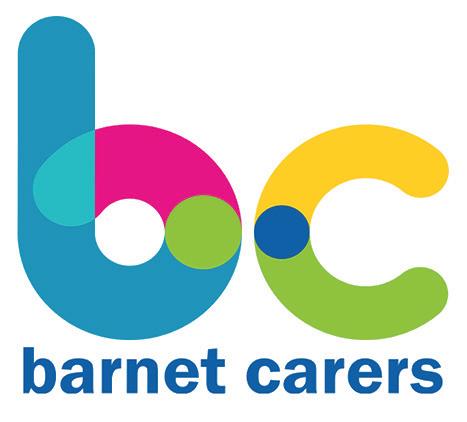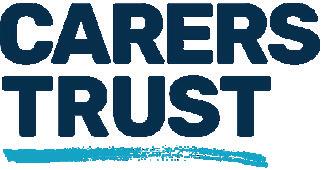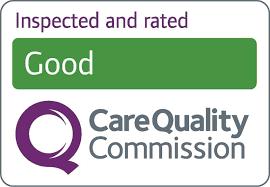

choosing your at-home care
an independent guide

What is home care?
Home care is supportive care provided by trained individuals in your own home. The aim is to help you stay living independently and safely in your own home for as long as you wish.
It may be flexible, for example, for a few weeks while you recuperate from an illness, or it can be long term. Home care should fit around your needsyou might need a carer for a couple of hours a week or several hours a day, or you might need a live-in carer. Home care may also be used as respite to give family carers and friends a rest from their normal responsibilities. This type of care is also known as domiciliary care.

Who is home care for?
A wide variety of individuals of all ages may require home care at some stage of their lives. Having a carer come to your own home can make an enormous difference to your quality of life, especially if you have age related issues such as walking or getting around, hearing difficulties or sight impairment.
Home care can also provide support in your home for many long-term conditions such as: ldementia; lautism; lepilepsy.
Home care can also help support you if you have a chronic progressive neurological conditions such as multiple sclerosis, which requires comprehensive medical management.
Questions you should ask.
How will you choose the most suitable carer for me?
What makes a good carer?
A good carer is someone who is doing their caring job for the right reasons, namely that they want to do something rewarding that provides the right help and support to people in their community.
Your care worker should have the right skills to meet your particular needs. They should get to know you, and your likes and dislikes.
They should be:
lHonest and trustworthy;
lReliable, they will turn up when they say they will and be on time;
lCalm and patient;
lA good communicator;
lWell trained (with an appropriate specialism if required);
lFlexible to meet your needs;
lKnowledgeable about what support is available to get the best outcomes for you.
Your carer should be respectful of your cultural and religious values, including any particular food requirements. The carer should take into account what you feel you can do and what you want to be able to do, and treat you with dignity and compassion at all times.
While not essential, it does helps if your carer is local or has good local knowledge – they are more likely to be on time if they are aware of local transport and the traffic hotspots!

Questions you should ask.
What services are charged as extras?
What are the benefits of home care?
Remaining active in your local community is an important part of staying engaged with life.
Loneliness affects many older people and those with disabilities and a visit from a friendly face is a life line that many home-care recipients rely upon.
A carer can visit you in your own home, at a time to suit you, to help with all kinds of issues, including:
lGetting in and out of bed;
lWashing, cleaning your teeth, dressing and brushing your hair;
lUsing the toilet;
lPreparing food and drink;
lReminding you to take your medicines;
lCollecting prescriptions or your pension;
lCompanionship;
lRehabilitation requirements, like providing motivation and monitoring your exercise programme;
lEquipment needs – as part of your holistic care needs, your carer can use their training to identify any equipment that might assist you in your day-to-day living;
lGetting out and about, for example to a day centre, lunch club, etc.
You may require more specialist help, for example with percutaneous endoscopic gastrostomy (PEG) feeding and stoma care routine. If you are unsure what assistance you require then speak to your GP or contact your local social services department.
A

good care worker should be calm, kind and patient
How to find the right carer?
First, understand your needs. There are many different types of agencies that provide care:
lprivately owned agencies; lfranchises; lcharities.
Secondly, check on quality standards, for example, the Care Quality Commission (CQC) performance rating, This should be prominent on the care provider’s website. Always read the whole of the Care Quality Commission report on your chosen home care provider as they provide a great deal of useful information that often goes beyond the ratings.
The CQC is the independent regulator of all health and social care services in England. It monitors, inspects and regulates other care services to make sure they meet fundamental standards of quality and safety, and it publishes what it finds, including performance ratings.

At this stage you should also take some time to check third-party references, such as consumer review websites, like Trust Pilot, but be careful to remember that Trust Pilot is a national measure –the overall rating may not apply to your local agency, especially if you have chosen to use the services of a franchise.
Questions you should ask.
Will the carer visit in an agreed time slot and will they tell me if they are delayed or running late?
If I am paying for my own care, do you have a standard contract/terms & conditions that I can read before signing?
What makes a good home care provider?
The services that you can expect from home care will depend on a needs assessment and how you are funding your care; however, a good provider should exhibit the following:
lIt should be totally user centred;
lIt should have transparent, easy-to-understand pricing, i.e. are the hourly rates for day care, specialist care, nights and sleeping nights, weekday and weekends clearly set out and explained;
lServices should be clearly defined – know what you are paying for;
lA good care provider will treat its staff fairly, and care about their health and wellbeing;
lIt should pay its staff at least the national minimum hourly wage and provide regular training and other ongoing support;
lIt should provide staff biographies;
lIt should communicate regularly with the client and/or the cared for person;
lIt will have open and accessible policies and procedures, e.g. around safeguarding and complaints, etc.
The emphasis of a good agency should always be on providing high-quality care and the absolute needs of the person receiving the care.
Think Carefully...
We recommend you to think very carefully before you employ a private individual as your carer. They may not be insured and their skills may not be kept up to date. You might also find yourself legally responsible for deducting tax and National Insurance from their wages and having to pay the employer’s National Insurance contribution. This will include sick pay and holidays, and arranging cover for their absences.

Questions you should ask.
Have your carers looked after someone with similar care needs to me?
What should you expect?
Your home care provider should always treat you in a respectful way. For example, they should always:
lknock on the door or ring the front-door bell and announce their arrival before coming into your home;
lbring a photo-identity card;
lknow where your keys are kept if they are not in your home;
lkeep any entry codes to your house confidential;
lknow what to do if they cannot gain access to your home;
lknow what to do if you have an accident.

Your home care provider should let you know in advance if a different care worker is coming to visit you.

You should have a home care plan tailored to your individual requirements.

Your provider should review your plan in the first six weeks of your first care visit to make sure that you are happy with it. Thereafter, the plan should be reviewed at least once a year.

Other professionals who help you at home, like physiotherapists, community nurses should ideally update it every time they visit.
Your home care plan should be clear and concise and include information about:
lyour health, medicines and pain management (if any);
lskin care and any other support to help you to stay well;
lkeeping you safe;
lwhat will happen if you care worker is late or unable to visit you;
lcontact telephone numbers.
Keeping safe
Your home care provider should have a Safeguarding Policy Statement. This document should aim to ensure that you will have all of your needs met, be kept safe and will be protected from the risk of abuse and/or harm by its robust implementation.
Complaints about your care
You have a right to complain if you are unhappy about the care you are receiving at home. Making a complaint can be stressful so ask for support from a friend, family member or an advocate. Your Local Authority must provide you with an independent advocate, i.e. someone to help you get your voice heard if you need to make a complaint.

Try an informal approach first – explain to the provider why you are not happy with your care and what you would like to happen to make it better.

If this does not work, the next step is to make a formal complaint. Your care provider should have an easily accessible complaints procedure on their website or in print format.

If you are in receipt of a direct payment and are not happy with your provider’s response, then speak with your Local Authority. They may handle your complaint.

If you are paying for yourself complain directly to your care provider.

If you are still not satisfied with the response to your complaint, you can ask the Local Government Ombudsman to investigate: http://www.lgo.org.uk/

You can also raise your concerns with the Care Quality Commission.
Questions you should always ask
Here is a list of useful questions to ask your home care provider before employing them:
What charges, if any, will I be expected to pay?
What services are charged as extras?
Have your carers looked after someone with similar care needs to me?
How will you choose the most suitable carer for me?
Will the carer visit in an agreed time slot and will they tell me if they are delayed or running late?
What sort of training do your carers get?
How can I contact you during the day, in an emergency, or outside of office hours?
If I am paying for my own care, do you have a standard contract/terms & conditions that I can read before signing?
If the Local Authority is contributing to my care can I see a copy of the agreement they have with you?
Want to know more?
Visit our website by scanning this code

We have been supplying high quality at-home care in Barnet for over 30 years. We are a London Borough of Barnet Approved Supplier, a network partner of the Carers Trust and affiliate member of Carers UK. Our service is inspected and regulated by both the London Borough of Barnet and the Care Quality Commission. We are also an accredited provider of care related training from Advantage Accreditation.




If you would like to know more about the at-home care that we can provide you can contact us in the following ways:
e: homecare@barnetcarers.org
t: 020 3995 1909
w: barnethomecarers.org / barnetcarers.org
Barnet Home Carers
Global House
303 Ballards Lane
London N12 8NP

